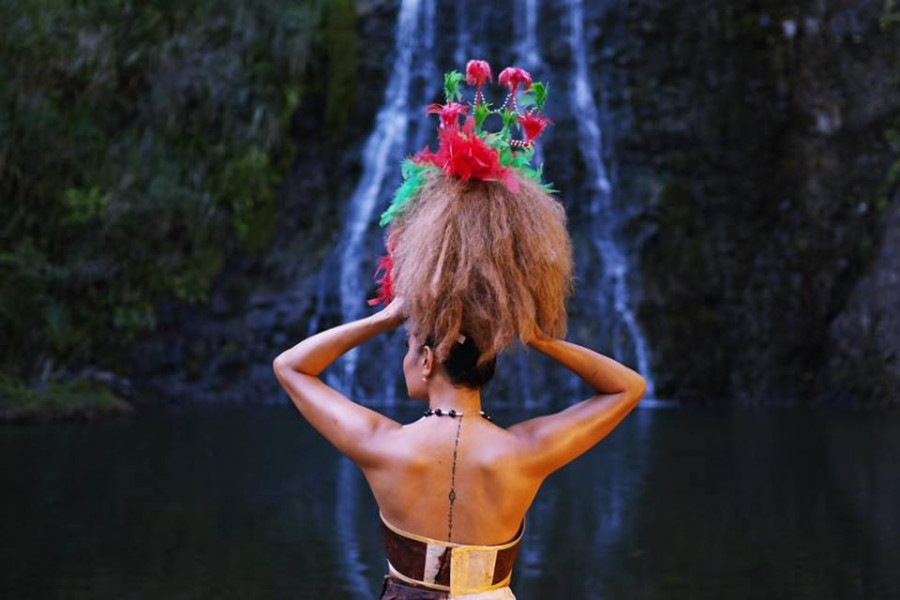Lifting the veil on subconscious bias in the workplace
Lifting the veil on subconscious bias in the workplace

Chief Executive of the Ministry for Pacific Peoples Laulu Mac Leauanae shares some thoughts on the release of a new webseries Misadventures of a Pacific Professional, which highlights some of the subconscious biases Pacific people can experience in the workplace...
Every day we come to work, we not only expect we will be rewarded equally for the time, energy and commitment we put into our jobs, no matter our background, but that we will also be treated respectfully by our colleagues. But for far too many of our Pacific and Māori friends, colleagues neighbours, as well as those of other ethnicities from various countries who have made their home here, that is not the case.
Some of these experiences have been brought to life in a new webseries, which helps to lift the veil on some of our subconscious attitudes towards others in the workplace. Told through the eyes of Alofa Williams, a Pacific professional woman who has recently joined a firm at a senior level, the film takes us on a journey that will feel familiar to many.
Either because we have experienced situations similar to those Alofa goes through, or because we ourselves have behaved in ways that, unknowingly, have been shaped by our subconscious bias. Being aware of these biases can help us to identify situations where our background, personal experiences, societal stereotypes and cultural context have impacted our decisions and actions without us necessarily realising.
It was our great privilege this week to host a screening of Misadventures of a Pacific Professional at the Ministry for Pacific Peoples with the wife and husband team behind the production, Tupe and Esera Soloman-Tanoa’i.
There are six clips in total, each of which are approximately two and half minutes long. One of the questions Alofa’s story seeks to answer is why, if equality is enshrined in law, does society and the workplace still look so unfair? It does this by giving us a glimpse into what will be day-to-day realities for many Pacific people. This shows the power of biases to shape decisions and actions in almost every aspect of life.
There are countless studies that confirm the presence of these biases, but the film differs by telling a personal story based on film maker Tupe Soloman-Tanoa’i’s work experiences.
What makes the film stand out is we don’t just see the story play out through the interactions between Alofa and her colleagues - from her name being pronounced incorrectly, to an assumption she is the caterer right before she is introduced to her new colleagues as the new Chief Financial Officer. What we also get a glimpse of is Alofa’s competing internal monologue, where different perspectives are offered on the most appropriate way for her to respond to these situations.
These monologues do reveal something of who we are as Pacific people. Everything we do we take our families and communities with us. We come from a long line of people whose stories go back many hundreds of years, and reach across many thousands of miles.
Because of this, a lot of us see ourselves in the workplace as being at the intersection between centuries of history and culture, and modern Aotearoa New Zealand. This can be a challenging place to be, where knowing how to respond to difficult situations isn’t immediately obvious.
That’s why it is so important we all do more to recognise bias, understand its significance and act to hold it in check.
The antagonists in the film, however, tend to see Alofa’s story through their own lens. For them, bias is a useful way to to cluster people into groups, attached to which are certain expectations and behavioural norms about the place they should occupy at work and their success.
The film’s characters then use these categories to navigate and understand the world around them. What is suggested by this is that prejudice is hard-wired and requires a concerted, long-term effort to overcome.
This is far from a problem of Pākehā New Zealand. What the film shows is that we all do it. We are all prone to subconscious bias, whether because of gender, race or age.
These biases can seep deep into decisions that affect how we interact at work, the opportunities we provide to others, and the assumptions we make about somebody’s background. More than this, they can then be internalised by the people who are subject to bias, and even shape the decisions they make about their own worth, talent and career path.
The film, therefore, does not set out to place blame but to make us aware of the associations we subconsciously make. We are all complicit. Knowing this, we can then look at our own behaviour and see it’s wrong to think or act like the antagonists represented in the film. We all have the ability to do that.
